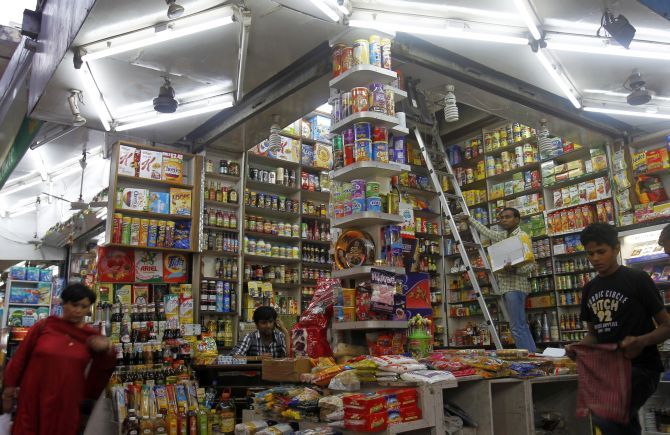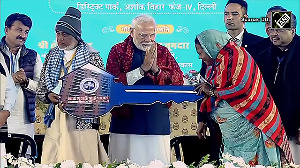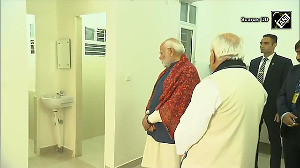
Newcomers should focus on converting their big-bang entry into a sustainable, long-term business
Bill Gross, the founder of several start-ups and the incubator of many others, delivered a TED talk in June 2015.
While he was passionate that start-ups were the biggest drivers in any economy, he was also curious about why some start-ups succeeded and other failed; so he gathered a huge volume of data, available from his own investments and those of others.
He ranked each start-up on five factors: idea, team, business model, funds and timing.
Clearly all five are key to success, but which is the most important, what is the hierarchy of their importance? His findings: wonder of wonders, it is the timing of the innovation that ranks first (42 per cent), followed by the team (32 per cent), and third, the idea (28 per cent).
Considering the number of passionate-looking innovators, who imagine that innovation is the act of thinking of an idea, this is a lesson! The business model (24per cent) and funding (14 per cent) came fourth and fifth.
These results are surprising, and they surprised even Gross.
In the relatively staid Indian FMCG market, an upstart has made a huge impact through superb timing of its entry and by scaling up: The Patanjali brand has made a significant consumer impact in a very short time.
I reflected on what the company -- Patanjali Ayurved or any other such FMCG entrant -- must be watchful of to convert such a big-bang beginning into a sustainable, long-term business.
What are the risks they must guard against?
First is excessive brand extension and distraction.
So long as the product range is squarely in the wellness space (I include personal products and ghee in wellness, but not mustard oil or detergents), it will pass muster with the consumer.
Stretching the image into jams, noodles, detergents and cattle feed is neither smart nor image-consistent.
Patanjali has a choice to make: create scale by either being a minor player in a large number of categories or a significant player in select categories.
Second is the ability to deliver a consistent quality, day after day, year after year.
FMCG companies have built systems of quality assurance, safety, food standards and general excellence over decades.
It’s not rocket science, but delivering results reliably requires a strong systems orientation.
Because consumers are hassled with lifestyle pressures, they long for the natural, grandmother and ayurveda remedies, which stand pre-sold in their minds.
They trust blindly, and that trust must never be broken in terms of ingredients, quality and freshness.
That is a tall order to deliver. Some of the quality complaints displayed on social media are horrendous.
Third is to remain focused on the consumer rather than on the competitor, an imaginary enemy.
Patanjali should remember that long-lasting, value-creating consumer companies are rarely controversial entities; they are almost self-effacing because they are always trying to strengthen consumer trust.
Advertising or product claims that get struck down by legal courts or by standards councils do not augur well for Patanjali.
Suggesting that other edible oils in the country carry carcinogens or adding sodium benzoate as a preservative and claiming that the product is “chemicals-free” are avoidable.
How can a detergent be chemicals-free?
The consumer does not really care whether Patanjali deals a death blow to MNCs or Indian manufacturers.
Fourth is product distribution. “Hero-related” brands such as VLCC and Body Shop rely on exclusive stores rather than on general trade.
Patanjali’s ability to get corporate stacking in modern trade is impressive.
Currently, Patanjali offers tight retailer margins, but reaches well under 10 percent of the retail universe.
It is expanding distribution gradually on the strength of consumer pull, but there is a long way to go.
Fifth is to dilute the political connections of the business. Consumer research data clearly shows consumer disapproval when the Patanjali brand ambassador got involved with political statements or movements.
Changes in government regimes can change fortunes, for example, the availability of bank loans, favourable tax breaks, easing up of investigations into pending quality/tax cases, access of the business to powerful people and so on.
Sixth is the Icarus Syndrome.
If an entire business is constructed on the platform of one brand ambassador, there is inherent risk of life-after.
With growing success, differences of opinion and compatibility among the stakeholders could crack open.
History shows that it is only when commercial godmen die that the putrid remnants of their ashram or empire become visible to the public.
The author is a writer and corporate advisor; rgopal@themindworks.me







 © 2025 Rediff.com -
© 2025 Rediff.com -